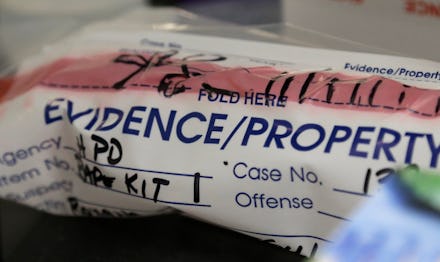Rape victims often pay nearly $1,000 for medical treatment

In addition to the physical, emotional and mental costs of rape, many victims in the U.S. are shouldering the financial burden as well.
A new study published in the American Journal of Public Health analyzed hospital billing records for 1,335 privately insured women who were raped in 2013. On average, those women paid roughly 14% of the total cost of treatment, which doesn't sound too steep — except it translates to an average of $948. Insurance companies paid an average of $5,789.
"With other violent crimes, victims are not responsible for paying for the damage that results from the crime," Ashley Tennessee, the study's lead author and an assistant professor in the Medical University of South Carolina's Division of Healthcare studies, told Reuters Health. "Many people know sexual assault is an issue, but they're often unaware that victims have to pay for associated medical charges."
The 1994 Violence Against Women Act, most recently renewed in 2013, is supposed to shield rape victims from the costs of medical care. It requires states to pay for forensic exams — also called rape kits — but doesn't address the other services patients often receive in the wake of sexual assault.
According to Reuters, 98% of the women in the study were not hospitalized and paid an average of $316 for outpatient services, while a hospital admission translated to an average out-of-pocket cost of $788. About 63% continued accruing costs in the month after their hospital visit, paying for things like prescription drugs — pain medication, Plan B, HIV prevention medication, antibiotics, drugs to ease anxiety, etc. — mental health care and residual medical treatment.
In 2014, the Justice Department commissioned a similar study to see how often rape victims were obligated to pay for forensic exams and what those exams entailed. It found that rape kits were often provided free of charge, but certain areas were poorly informed of the law and associated procedures. Things like pregnancy and STI tests weren't always covered, nor were the associated drugs. And some states placed limits on the amount of care they'll cover in the wake of a rape.
The extra costs could deter victims from reporting an already underreported crime or from receiving treatment at all, Reuters reported.
"This financial burden adds to the emotional burden of sexual assault," Tennessee said. "This is an area that society has missed, and we have a moral right to help victims."